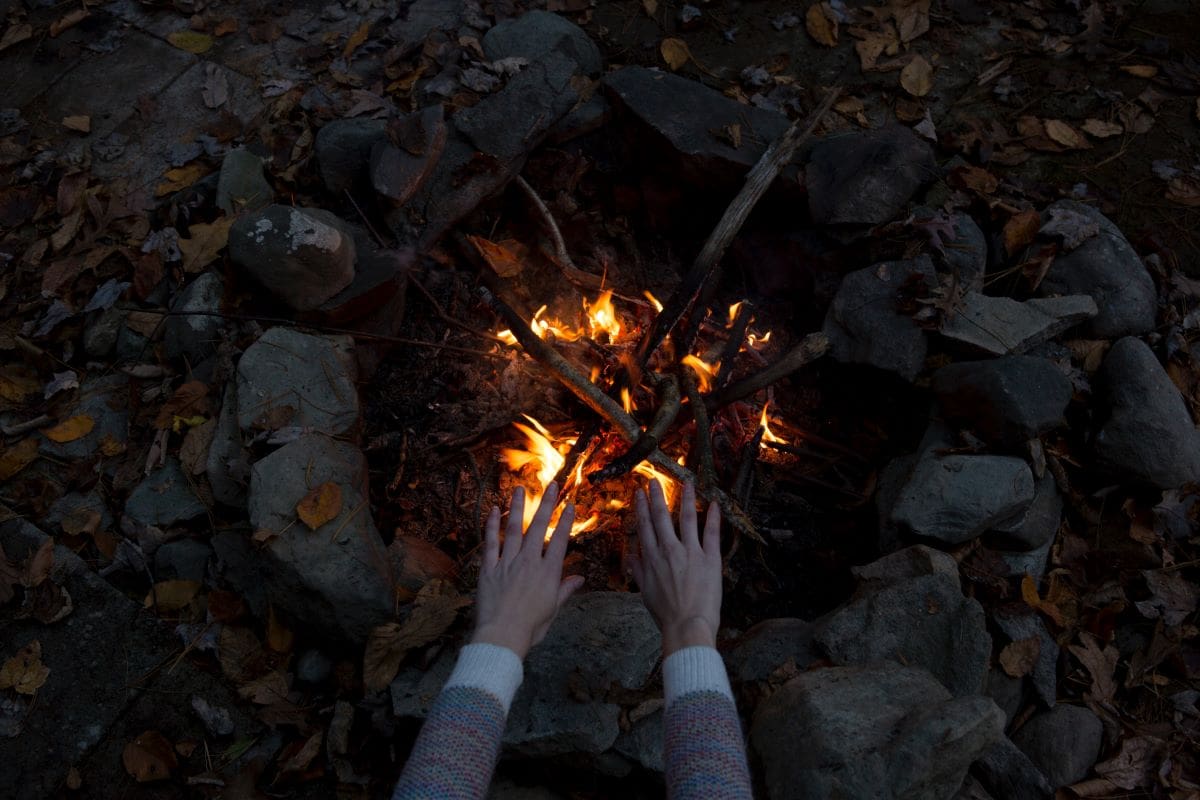Do not let the fire go out on the altar (Lev. 6:13).
Here is one tall order in Scripture, if I’ve ever seen one.
God gave this instruction to the Old Testament priests. If that wasn’t enough, he also called his people to offer ceaseless sacrifices—burning bloody, slain animals, day after day, morning and evening.
God gives us helpful pictures in his Word so that we may better understand the nature and purposes of his commands. Here, the fire represents the presence of God, always emanating, or “burning” with, holiness and purity. The animal sacrifices depict the necessary payment for sin. God’s people placed these atoning sacrifices on the altar and watched the flames consume them. How was this perpetually possible? The priests obeyed God’s command to tend the fire, and God graciously dwelt with his unholy and undeserving people.
Today, we no longer need to sacrifice animals before coming into God’s presence. Since Christ gave himself as a once-for-all sacrifice (Heb. 9:26-28), those who put their faith in him can freely enter into God’s presence, day after day, morning and evening. The Old Testament sacrificial system pointed to Christ but is no longer necessary in light of Christ’s completed, atoning work on the cross.
Spiritual Fire
While there is no longer a physical fire that we must tend to, there is most certainly a spiritual one for today’s “royal priesthood”—Peter’s remarkable name for Christian believers (1 Pet. 2:9). The Levitical priests’ task reminds us of Paul’s exhortation to another perpetual action: to “pray without ceasing” (1 Thess. 5:17). Similarly, C.H. Spurgeon applies Leviticus 6:13 to Christians, challenging them “[k]eep the altar of private prayer burning.” [1]
While the Bible tells us that we are “priests”, we serve a great high priest, who is God. Hear Christ’s compassionate invitation in Hebrews 4:15-16: “For we do not have a high priest who is unable to sympathize with our weaknesses, but one who in every respect has been tempted as we are, yet without sin. Let us then with confidence draw near to the throne of grace, that we may receive mercy and find grace to help in time of need.”
In Leviticus 9:24, God initiates the physical fire. He is the fire-starter. Likewise, he is the initiator of our devotion to him today. The Holy Spirit moves in our hearts to grant us the faith to trust in Christ. We love the Lord, because he first loved us (1 Jn. 4:19). Knowing that the great high priest changes our hearts, we look to him to ignite in us a fresh love for him and a greater desire to commune with him.
There is common ground between the Old Testament priests tending a physical fire and today’s “royal priesthood” of believers who mind a spiritual fire on the altar of private prayer. Both require hard work. Prayer takes effort. Praying “without ceasing” is a tall order—a solitary battle won or lost each day. It is a battle worth fighting.
Humble Devotion
To pray without ceasing is not the call to never stop talking, but rather it is carrying a sense of prayerfulness into every aspect of our lives. I have heard it described as an open phone line with the Lord, where we never have to hang up. It is an awareness of being in his presence throughout each day. From the time we wake up until our heads hit the pillow, the Lord wants us to be conscious of his presence.
Regular, frequent, and undisturbed prayer is one of the most difficult things we are called to in the Christian life. Yet we know by experience that nothing worth doing comes easily. Spurgeon rightly says that “[secret] devotion is the very essence, evidence, and barometer, of vital…religion.” [2] All other aspects of our lives borrow from the vibrancy of our time spent in personal fellowship with the Lord.
Devotion to private prayer comes with the cost of our time, our focus, and our pride. We do not like to be dependent, but isn’t that how the Christian life works? While we often function as if we are self-sufficient, the truth is that we are creaturely, and therefore wholly dependent. Prayer is the best reminder of our right relation to God. Not even Jesus Christ operated apart from dependence on the Holy Spirit and prayer. The Holy Spirit was Jesus’ inseparable companion, and the same Spirit who empowered our Lord Jesus Christ is the Spirit who lives within all believers, and enables us to commune with God.
Private prayer is the most beautiful posture and priority in the life of a believer because it tells the truth about our position before God. It reflects the fact that we are not the authors of our lives; rather, we depend on God for our every breath. Private prayer instructs our hearts to this end. It also operationalizes the mysterious reality that the God who holds all things together (Col. 1:17) also wants to spend intimate one-on-one time with us. He wants to intentionally commune with us every day, throughout the day. We can have no greater audience than a private exchange with the living God.
Priority and Privilege
In addition to tending the fire, God instructed the Old Testament priests to regularly remove the ashes of each burnt offering. This task was a priority in order that the fire would stay ablaze. What ashes are accumulating on the fire of our secret devotion to God? God does not want our lukewarm hearts, so we must examine what smothers the flames. It may be the concerns of daily life, a long to-do list, unforgiveness, or unrepentant sin. It is time to lay those things aside.
One of the best ways to reignite a fire that once burned brightly is to open the Bible. Spending time with God’s people and listening to sermons are good things, but they are no substitute for independently digging into God’s Word. As Scripture reminds us of who God is, what he has done for us, and why he deserves our wholehearted devotion, we will be more motivated to spend daily time in his presence.
Prioritizing private prayer will help us to live for God’s glory and also receive the greatest joy and satisfaction from our communion with him. When we spend time in God’s presence, and are reminded of biblical truths, the burden of prayer transforms into the privilege of prayer.
_____
Photo: Unsplash
1. C.H. Spurgeon, Morning & Evening (Hendrickson Publishers, 1995), 394.
2. C.H. Spurgeon, ibid








